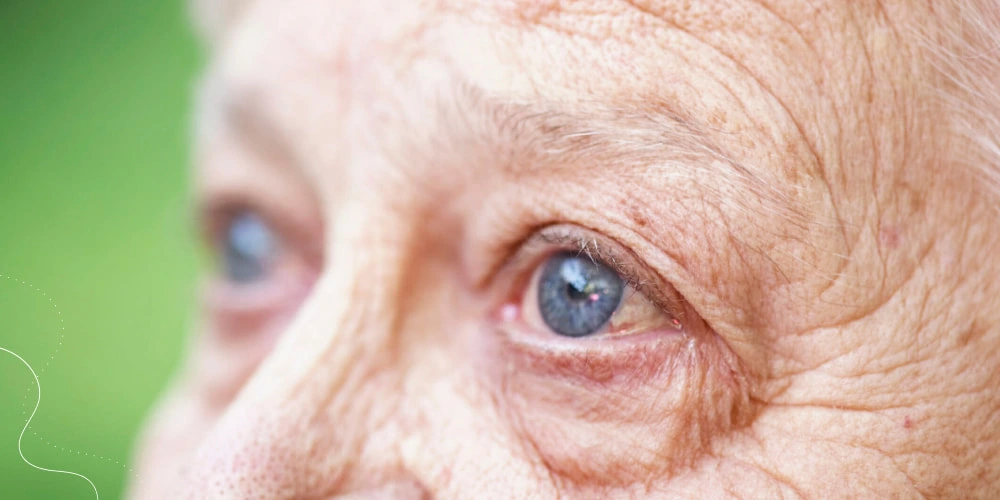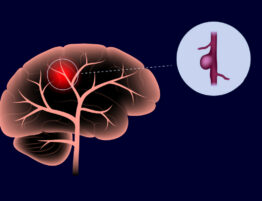Movement disorders are conditions that affect a person’s ability to control movement. There are several types of them, each with its own symptoms. Some are relatively mild, while others can be very severe and debilitating. All these conditions have their own characteristics, symptoms and causes.
In this article, we will explore the various types of movement disorders and discuss the treatments available for them. We hope this information will help you better understand these conditions and how they affect people’s lives.
Essential Tremor
Essential tremor is a neurological disorder that causes involuntary and rhythmic shaking. It can affect any part of the body, but is most commonly felt in the hands, arms, head, or voice.
According to various researchers, the prevalence of essential tremor ranges from 0.41 to 3.92% in the general population and increases significantly with age. In the age group:
- Over 60 years old, it ranges from 1.3 to 5.05%.
- 85-94 years old – 9.9%.
- And in the age group of patients over 95 years old – 21.7%.
In some ethnic groups, the prevalence of essential tremor may be higher than in the general population, and reach 7.3%
Symptoms typically begin in middle age and worsen with years. There is no cure for essential tremor, but treatment can help to improve symptoms.
Symptoms
- Begin gradually, usually more prominently on one side of the body.
- Worsen with movement.
- Usually occur in the hands first, affecting one hand or both hands.
- Can include a “yes-yes” or “no-no” motion of the head.
- May be aggravated by emotional stress, fatigue, caffeine or temperature extremes.
Causes
The causes of essential tremor are unknown, but it is believed to be due to abnormalities in the central nervous system.
Ataxia
The core of this condition may be grasped from the term itself, which translates from Greek to disarray. It is a neurological condition characterized by a lack of coordination of muscular movements. It can impact any body part’s mobility, although it most usually affects the limbs and trunk.
There are several kinds of this movement disorder. Some are more prevalent than others. Cerebral ataxia is the most prevalent kind of ataxia, which affects the cerebellum, a portion of the brain that governs movement. Other kinds are as follows:
- Sensory ataxia is caused by nerve injury that travels from the sensory organs to the brain.
- Vestibular ataxia is caused by injury to the vestibular system, which is in charge of balance.
- Spinal ataxia is caused by spinal cord injury.
Causes
Ataxia may be caused by a variety of conditions that damage the nervous system:
- Stroke.
- Cerebral palsy.
- Multiple sclerosis.
- Degenerative diseases such as Huntington’s disease and Friedreich’s ataxia.
Many types of ataxia are genetic, meaning they are passed down in families.
Symptoms
The common symptoms are:
- Poor coordination.
- Walking unsteadily or with the feet set wide apart.
- Poor balance.
- Difficulty with fine motor tasks, such as eating, writing or buttoning a shirt.
- Change in speech.
- Involuntary back-and-forth eye movements (nystagmus).
- Difficulty swallowing.
Parkinson’s Disease and Parkinsonism
Parkinson’s disease (PD) is a degenerative disorder of the central nervous system that often impairs the sufferer’s motor skills, speech, and other functions.
There are 5 stages of the disease:
- Zero, initial stage. It is diagnosed under an extremely close medical examination, consultation and analysis. At this stage, there are no visible symptoms.
- The first stage is characterized by the disorders of motor activity of one of the limbs.
- Intermediate stage, which was added additionally. It affects the trunk and limb.
- Second stage. To understand how the disease manifests itself, there is no need to visit a doctor. There are symptoms on the other side, but the person is stable in an upright position of the body.
- Third stage. The patient is no longer able to keep the body fixed in space and control the limbs, but is capable of self-service.
- The fourth stage. The patient is able to move, walk, sit, but not without support.
- The fifth is the last stage of Parkinson’s disease. Complete disability and confinement to the bed. The patient is unable to self-care.
Learn more about the stages of Parkinson’s disease in our blog.
Symptoms
The most common symptom of PD is tremor.
It is involuntary shaking of:
- The hands.
- Arms.
- Legs.
- Head.
Other symptoms may include stiffness of the limbs and trunk, slowness of movement, impaired balance and coordination, and changes in speech and handwriting.
Causes
The cause of PD is unknown, but it is believed to involve both genetic and environmental factors.
PD can be difficult to diagnose in its early stages, as symptoms may be mild or nonspecific. There is no cure for PD, but treatments are available to help relieve symptoms and improve quality of life. To change the situation, contact a movement disorder neurologist who specializes in the diagnosis and treatment of PD and other disorders of movement.
Dystonia
Dystonia is a movement disorder in which your muscles contract involuntarily, causing abnormal postures and repetitive motions.
The etiology is classified as follows:
- Hereditary: It has proven genetic origin (formerly known as primary) and includes disorders with autosomal dominant, autosomal recessive, mitochondrial, or X-linked inheritance.
- Idiopathic: may be familial or sporadic.
- Acquired: associated with neuroanatomical pathologies due to other disorders.
Symptoms
The symptoms vary depending on the types of dystonia, but may include:
- Muscle spasms.
- Twisting and repetitive movements.
- Uncontrollable blinking.
- Drooling.
Causes
Dystonia can be caused by a combination of hereditary factors, trauma, and other disorders. Medication, botulinum toxin injections, and deep brain stimulation are all treatment possibilities.
If you or a loved one are experiencing these symptoms, it is critical that you consult with a movement disorder neurologist to receive an appropriate diagnosis and treatment plan. Movement disorders are complicated and necessitate the services of a specialist.
Restless Legs Syndrome
Restless legs syndrome (RLS) is a disorder that causes an uncontrollable urge to move your legs. This urge is usually accompanied by a tingling sensation in your legs. You may also experience burning, throbbing, or creeping sensations.
Restless legs syndrome (RLS) is a neurological sleep disorder characterized by movement of the legs during sleep or rest. Patients experience an overwhelming need to move their legs due to discomfort or discomfort in the legs. Symptoms occur during periods of low activity, usually in the evening or at night. This syndrome is also known as Willis-Ekbom disease.
RLS can interfere with or disrupt sleep. Treatment involves lifestyle changes to relieve symptoms and improve sleep quality. Some patients may also need medication.
Symptoms
The primary symptom of restless legs syndrome is the irresistible urge to move your legs. The sensation is often described as:
- Uncomfortable.
- Aching.
- Itchy.
- Tingling.
- Burning.
- Creeping.
They typically begin when you’re at rest, such as when you’re sitting in a movie theater or lying in bed at night. The urge to move often improves with movement. For instance, you may feel better after taking a walk or stretching your legs.
Causes
The cause of restless legs syndrome is unknown in most cases. However, there appears to be a link between the condition and iron deficiency. Other possible causes include pregnancy, kidney failure, and certain neurological conditions.
There is no cure for restless legs syndrome. However, treatments can help relieve the symptoms.
Tourette Syndrome
Tourette syndrome is a neurological disorder that causes people to make sudden, uncontrolled movements or sounds (called tics). The disorder is named for French doctor Georges Gilles de la Tourette, who first described it in 1885.
Tourette syndrome can be mild or severe.
- In mild cases, tics occur only occasionally and do not interfere with a person’s ability to function.
- In severe cases, tics can be constant and can interfere with a person’s ability to speak, write, or perform simple tasks.
Most people with Tourette syndrome develop the condition in childhood. The disorder is more common in boys than in girls.
There is no cure for Tourette syndrome, but treatments can help lessen the frequency and severity of tics.
Symptoms
The main symptom of Tourette syndrome is tics. Tics are sudden, uncontrollable movements or sounds that people make over and over again.
Tics can be:
- Motor tics, which involve movement.
- Vocal tics, which involve sounds.
- Simple tics, which involve only one muscle group.
- Complex tics, which involve more than one muscle group.
Tics can occur in any part of the body. Common motor tics include:
- Eye blinking.
- Head jerking.
- Shoulder shrugging.
- Foot tapping.
Common vocal tics include:
- Grunting.
- Coughing.
- Throat clearing.
- Sniffing.
- Yelling.
- Saying words or phrases over and over again (called palilalia).
Causes
The exact cause of Tourette syndrome is unknown. It is believed to be caused by a combination of genetic and environmental factors.
Tourette syndrome runs in families, so it is thought that genes may play a role in the disorder. Researchers have identified several genes that may be involved in the development of Tourette syndrome.
Progressive Supranuclear Palsyа
Progressive supranuclear palsy (PSP) is a rare degenerative brain dysfunction that affects movement, control of walking (gait) and balance, and eye movements. Early onset and a progressive course are characteristic features of the disease. The average age of onset is around 60 years, but the range is wide, from the early 40s to the late 80s. The disorder is more common in men than women.
PSP generally follows one of two types of clinical courses.The first and most common type features a gradual onset over several years, with progressive worsening of symptoms and eventual confinement to bed. The second type features a more sudden onset, with a more rapid progression of symptoms.
Symptoms
The most common symptom of PSP is problems with eye movements, including difficulty looking up and down (vertical gaze palsy).
Other early symptoms may include slurred speech, dysphagia (difficulty swallowing), and changes in personality or cognition. As the disease progresses, patients may experience falls, freezing of gait, and rigidity.
Causes
The cause of PSP is currently unknown. However, the disease is believed to be caused by a combination of genetic and environmental factors. There is no known cure for PSP. However, treatments for movement disorder are available to help manage symptoms and improve quality of life.
A movement disorder neurologist can diagnose PSP based on a review of symptoms and medical history, a neurological exam, and imaging tests. There is no one specific test for PSP. However, brain imaging (MRI or CT scan) may show some abnormalities in the brainstem or basal ganglia.
Multiple System Atrophy
Multisystem atrophy is a neurological degenerative illness. It is linked to nerve cell degeneration in certain parts of the brain. This cellular degeneration impairs mobility, balance, and other autonomic processes of the body such as urine control and blood pressure management.
This syndrome’s causes are unclear, and no particular risk factors have been discovered. Approximately 55% of cases occur in men between the ages of 50 and 60. MSA is a progressive disease, which means that symptoms intensify over time. The pace of advancement differs across individuals. MSA typically leads to death within 10 years of diagnosis.
Symptoms
MSA is characterized by three main types of symptoms:
- Autonomic: problems with blood pressure, heart rate, sweating, bowel and bladder function.
- Motor: problems with movement, coordination, and balance.
- Cognitive: problems with thinking, memory, and judgment.
Causes
There is no known cause of MSA, but it is thought to be caused by a combination of genetic and environmental factors. There is no cure for MSA, but there are treatments available to help manage symptoms.
Huntington’s Disease
Huntington’s disease is a type of movement disorder that affects the brain. It is an autosomal dominant disease characterized by the development of chorea, neuropsychiatric symptoms, and progressive cognitive impairment, usually beginning in middle age. It can be diagnosed by genetic testing. First-degree relatives should be offered genetic counseling prior to receiving genetic test results. Treatment is supportive.
Symptoms
The main symptom of Huntington’s disease is involuntary movements, or chorea. Chorea can involve any muscle in the body and can make it difficult to perform everyday tasks such as walking, eating, and dressing.
Causes
The cause of Huntington’s disease is a mutation in the Huntington’s gene. This gene mutation is passed down from parent to child. If you have a parent with Huntington’s disease, you have a 50% chance of inheriting the disease.
Treating Movement Disorders
Movement disorders are a class of neurological illnesses characterized by abnormal movement. Parkinson’s disease, dystonia, and tremor are the most frequent forms of movement disorders. Movement difficulties can be caused by brain or nerve issues, as well as other medical illnesses.
Medication, surgery, or other therapies can be used to treat the majority of movement problems. Some movement disorders, such as Parkinson’s disease, can be treated with dietary and lifestyle adjustments. If you have this problem, you should seek therapy from a neurologist or other movement disorder expert.
Bottom Line
It is very important to take care of our health, but those who are not professionals cannot do it. To do this correctly, consider Lone Star Neurology. The company offers the best possible care to its patients. Among the diseases treated by the company:
- Migraines
- Concussion
- Epilepsy
- Stroke
- Memory Loss
- Carpal Tunnel Syndrome
- Diabetic Neuropathy
You can always contact our experts for high-quality support. To do this, simply fill in the required lines in the message form and wait for a reply. You will then receive specialized advice and solutions.
FAQs
-
Can movement disorders be cured?
In many cases, movement disorders cannot be cured, and the goal of treatment is to minimize symptoms and relieve pain. Some are severe and progressive, impairing your ability to move and speak.
-
What are the signs of movement disorder?
Signs and symptoms of movement disorders vary depending on the underlying cause. In general, signs and symptoms of movement disorders include problems with physical coordination, trouble walking, episodes of uncontrolled movements (such as during a seizure), muscle weakness, twitching, or muscle spasm.
-
How is movement disorder diagnosed?
Your doctor will do a physical exam with a neurological assessment. The doctor will also check your muscle control and reflexes to help diagnose your condition.
-
Who can help with movement disorders?
A movement disorder specialist is a neurologist with additional training in Parkinson’s disease and other movement disorders. This type of doctor typically has extensive knowledge of Parkinson’s therapies and ongoing research.
Remember that self-medication can be dangerous and can lead to a variety of complications and poor health.


















Please, leave your review
Write a comment: